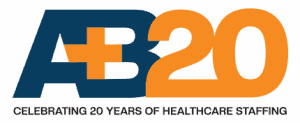It’s often hard to summarize a lifetime of education, training, and experiences in one document, yet when it comes to any job application, that’s precisely what candidates require.
Resumes provide recruiters and hiring managers a quick glimpse into a candidate’s lifetime of experiences enabling them to decide who gets an interview.
 For nurses, crafting a solid resume can be the difference between landing a position or not. It is the best opportunity to put their best foot forward in potential workplaces.
For nurses, crafting a solid resume can be the difference between landing a position or not. It is the best opportunity to put their best foot forward in potential workplaces.
With the increasing competition for the best nursing jobs, keeping a well-tailored, up-to-date resume on hand is crucial, especially if you want to explore travel nursing. The opportunities are vast, with employers dictating diverse needs, and every nurse is unique. Writing a solid resume portraying your best skills and accomplishments uniquely is your best bet.
Screening Nursing Resumes
The job application process has advanced in the past decades. If you wrote your first resume more than 15 years ago, you likely had to print it on off-white linen paper and deliver it physically to prospective employers.
However, the internet has completely transformed the application and hiring process and impacted the entire labor market over a very short time. And as technology continues to grow, the hiring process continues to be affected.
If you’re applying online and sending through a “submit” button, your resume is likely prescreened by software and only the most qualified candidates are forwarded to the decision makers.
How Does Screening Software Work?
An ATS is software that helps recruiters manage the hiring process. In most cases, you’ll apply for nursing jobs through an ATS, and if you’re already filling out an online job application, you are most likely using it.
It’s important to note that most tracking systems allow healthcare employers to decide which ATS features they want to use.
An employer may include specific keywords for the ATS to scan for. They may also choose to enter “knockout questions” (the most commonly used feature in the healthcare industry) to quickly eliminate unqualified applicants, such as “Do you have an active California state nursing license? Or, “Do you have three 3 years of recent ICU experience?
Some could even use “disqualifying statements” to automatically screen nursing candidates. For example, if the ATS is programmed to screen out all resumes lacking a BSN degree, anyone with an ADN will automatically be rejected. If you have both, you can just list the BSN.
Bottom line, be careful with the job description and use the exact terms or titles for the qualifications requested that you hold.
Top Details to Include on Your Nursing Resume
- Professional Summary

Travel Nursing Assignment Questions
Don’t make your potential employer search the entire resume for reasons to schedule an interview with you. Tell them right from the beginning why you are their best candidate.
Every role is unique, and this is your first opportunity to optimize your nursing resume for ATS and catch the employer’s attention. Spend more time targeting it and let your accomplishments and qualifications shine.
You can format your professional summary either in a short paragraph or bulleted list, providing a concise career snapshot and asserting qualifications.
Think of your professional summary as an elevator speech- a short, attention-grabbing, strong statement that entices readers to want to go on. It should be unique to you and targeted to the specific role.
It could include the following information:
- Years of experience in a specialty
- Keywords (often found in nursing job descriptions like excellent patient care, family education, acute care, compassionate.)
- Facility details or designations
- Supervisory roles plus the number of subordinates
- Special awards and honors
- Language abilities
- Soft skills such as compassion, patience, and a cooperative spirit
Example:
5+ years of nursing experience with a solid clinical background in intensive care (ICU). Proactively streamlines operations, supports the healthcare team and initiates tasks while prioritizing excellent patient care. Spearheads patient and family education through inclusive, compassionate care that encourages self-sufficiency and worthiness. Recipient of the Nursing Beacon Award. Bilingual in Spanish and English and Spanish
- Skills, duties, and areas of expertise
With the rising popularity of ATS, listing skills on your resume is necessary. The healthcare industry requires specific skills, so ensure you list them within the top third of the resume. Your skills should be targeted to the role as expressed in the job description.
Some employers will specifically ask for computer experience like the Electronic Health Record (EHR), and Electronic Medical Record (EMR) as the industry is increasingly going electronic with health records. You can add a separate Computer Skills heading on your resume or include it in your summary or job descriptions.
Combine duties, skills, and accomplishments into cohesive statements to maximize results with less space and avoid making a generic list of skills and duties.
Examples:
Provided patient care education and implemented patient discharge planning to promote recovery.
Achieved highest, gold-level quality review scores for duties related to educating and training patients and their families on ESRD.
- Nursing License Details
While most candidates list their licensure on their resumes, they often leave out some important details, especially whether the license is active and its expiration date.
Why is this crucial? Including this information assures potential employers that you are ready to start working as soon as they settle on you without waiting for the licensing process.
Here are all the vital license details you should include:
- License type
- Licensing state or body
- The name on the license if it’s different from the one on the resume
- License expiration date
- If the license is part of the Nurse Licensure Compact
Example:
RN – Registered Nurse, CA, expires: Dec 2022, # 432567
ACLS – Advanced Cardiac Life Support, AHA – American Heart Association, expires: Dec 2022 # 987432
- Relevant Education and Certifications
It’s crucial to list your relevant degrees and certifications in reverse chronological order starting with your highest degree. Without this section, recruiters will almost certainly remove your resume from the line in favor of other candidates that include it.
If you have work experience, the education section can be very brief. There’s no need to include your high school diploma or degrees that aren’t relevant to nursing or healthcare. Remember to list the name of the degree first, followed by the institution.
Education Details
- Degree(required)
- Institution
- City and State (required)
- Beginning and completion date (optional)
- GPA if it was commendably high (recommended)
- Awards, achievements, scholarly activities, and organizations (recommended)
For certifications, you should include the following details:
- Certification name
- Certifying body
- Expiration date (or the date the certificate was acquired if there is no official expiration date.)
Lastly, you may include details of any continuing education programs you’ve enrolled in within the last two years.
- Awards, Honors, Special Assignments, and Volunteer Work
As with all resumes, your nursing resume should include any accomplishments, honors, and awards received from work, school, professional affiliations, volunteer work, and even social clubs, including honors and awards earned by previous teams you were a part of.
You should include any special assignments in your previous roles, like mentoring, scheduling, or precepting. You can instead add these where applicable throughout other categories in your resume.
Examples:
Contributed to learning development and knowledge management efforts on a program that earned a gold-level Beacon Award for Excellence.
Elected president of Relief Charge in appreciation and recognition of demonstrated leadership, teamwork, and organizational skills.
- Professional Affiliations
This is often the final section of your resume. Many recruiters want to know if you are part of any professional associations relevant to nursing or healthcare.
Membership in these associations demonstrates your commitment to improving your skills. If you belong to affiliations like the Emergency Nurses Association or the American Association of Critical Care Nurses, then mention them in your resume, including the following details.
- Association name
- Admission date
- Offices Held
- Summary of your role or reason you chose this affiliation over others
Example:
Member of the Emergency Nurses Association since 2018. Secretary of the Sacramento, CA Chapter since 2020, collaborating, developing leadership skills, and sharing best practices with local colleagues.
Items Not to Include in Your Nursing Resume
- Avoid listing hobbies or activities not relevant to nursing
- Avoid special formatting characters like arrows or checkmarks. Standard bullet points are best.
- Don’t include graphics or images.
- Do not mention irrelevant personal information like marital status, weight, height, or private health-related information.
- Don’t use the “Header” and “Footer” as the ATS may not recognize them.
- Don’t mention references unless requested.
- Don’t mention previous, current, or expected compensation
- Avoid obscure section headers. Stick with the standard titles like Education, Summary, or Work History.
- Don’t include irrelevant experiences.
- Don’t get too fancy, creative, or colorful. Stick to black and use a standard font like Arial or Times New Roman that’s easy to read. Also, keep the font size between 11 and 12 for readability.
Your nursing resume is your best chance to showcase your value and stand out from other applicants. Use it as an opportunity to market what you have to offer and sell yourself. And if you don’t have enough nursing experience, focus on your clinical skills that will benefit your new employer.
Writing the perfect nursing resume is not easy, so it often helps to have advice and direction from friendly industry experts. As a travel nurse, you can get loads of valuable information from professionals whenever you need it. If you are ready for a career as a travel nurse, apply for a high-paying travel nurse job with ABSS staffing agency today.




